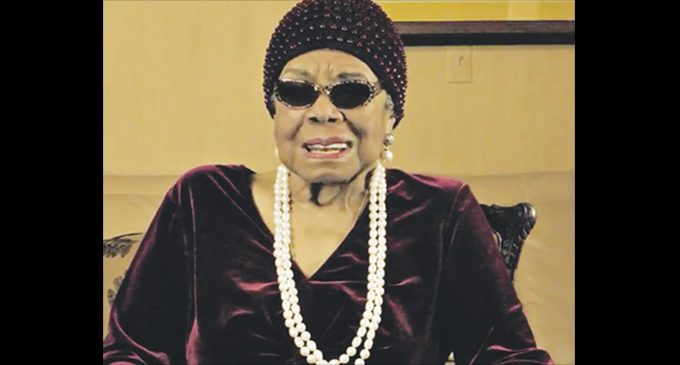Editorial: Remembering Dr. Maya Angelou
Dr. Maya Angelou

Tuesday marked the 5th anniversary of the passing of Dr. Maya Angelou. Angelou died on Wednesday, May 28, 2014 at the age of 86.
Angelou was born Marguerite Johnson in St. Louis, Missouri. Her parents divorced when she was three, and she and her brother went to live with their grandmother in Stamps, Arkansas. When she was eight, she was raped by her mother’s boyfriend. When she revealed what happened, her uncles kicked the culprit to death. Frightened by the power of her own tongue, Angelou chose not to speak for the next five years. From that quiet child emerged one of the most-relevant voices of our time.
Her talents spanned the scope of the arts community. She was a world-known poet, actress, civil rights activist and teacher, who reportedly discovered her passion for teaching at Wake Forest University.
She once said, “I’m not a writer who teaches. I am a teacher who writes. But I had to work at Wake Forest to know that.”
Angelou’s legacy has been earmarked in history by her book poems and speeches. “I Know Why The Caged Bird Sings” and “On the Pulse of Morning,” a poem she authored and read at President Bill Clinton’s first inauguration, display a peculiar type of awareness, one that has the ability to open eyes and touch hearts.
In addition, she is known for her profound remarks and phrases like:
–I’ve learned that people will forget what you said, people will forget what you did, but people will never forget how you made them feel.
–When someone shows you who they are believe them; the first time.
–Success is liking yourself, liking what you do, and liking how you do it.
Just recently a video resurfaced on Twitter and Facebook that exemplifies Dr. Angelou’s grit. The video, recorded in 1999, recants Angelou’s stark response to a young fan that addressed her as “Maya.” To which she responded, “I’m Ms. Angelou. I’m not Maya. I’m 62 years old. I’ve lived so long and tried so hard that a young woman like you – or any other – has a license to call me by my first name.”
This sparked a social media debate about respecting elders. The video has garnered almost two million likes and hundreds of thousands comments. Whether you agree with Dr. Angelou’s response or not, we all can agree that she demanded respect. And the fact that a 1999 video still has that kind of impact in 2019 attests to Angelou’s relevance, even now.
From the perils of the segregated South, through the portals of adversity, to the promise of the White House and then to the purpose in the classroom, Dr. Angelou taught us to fight for our humanness, no matter what color or sex it came in.
Remembering her words and presence on this earth is easy, because she lived so that she was hard to forget. In her poem, “And Still I Rise,” her prophetic words portrays a resilient spirit that remains with us today.
“You may write me down in history
With your bitter, twisted lies,
You may tread me in the very dirt
But still, like dust, I’ll rise.”















